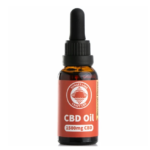The duration CBD remains detectable in the body varies among individuals. Factors such as metabolism, dosage, frequency of use, and consumption method play significant roles. While some may find CBD clears their system in days, others could experience weeks of detectability. Understanding these variables is essential, particularly for those facing potential drug tests. The implications of CBD use extend beyond mere enjoyment, prompting further examination of its effects on detection times.
Understanding CBD Metabolism
When individuals consume CBD, its metabolism begins almost immediately, yet the rate at which it is processed can vary significantly.
Factors such as individual body chemistry and consumption method influence cbd absorption rates.
These metabolism variations can lead to differing experiences among users, affecting how quickly CBD is broken down and eliminated from the body, ultimately determining its presence in the system.
Factors Affecting CBD Detection Time
Although many factors influence CBD detection time, individual differences in metabolism, dosage, and frequency of use are among the most significant.
Higher CBD dosage can lead to longer detection periods, as larger amounts may accumulate in the body.
Additionally, individual metabolism plays a crucial role; those with faster metabolic rates may process and eliminate CBD more quickly than others, resulting in varying detection times.
Typical Duration of CBD in the Body
The typical duration of CBD in the body can vary significantly based on several factors, including the method of consumption and individual metabolic rates.
CBD absorption rates influence how quickly it enters the bloodstream, while CBD elimination pathways determine how swiftly it exits the body.
Generally, CBD can remain detectable for days to weeks, depending on these variables and the frequency of use.
Tips for Managing CBD Use Before Drug Tests
As individuals consider using CBD, particularly in contexts where drug testing is a possibility, understanding how to manage consumption becomes crucial.
Maintaining a low CBD dosage can minimize the likelihood of detection. Additionally, timing usage to align with drug testing schedules and opting for CBD isolate products may help mitigate risks.
Awareness of individual metabolism also plays a key role in ensuring compliance with testing requirements.
Conclusion
In conclusion, the duration CBD remains detectable in the body is influenced by various factors, including metabolism and usage patterns. For those navigating the complexities of drug testing, understanding these elements is akin to walking a tightrope, where each step matters. By being mindful of dosage and timing, users can better manage their CBD intake and mitigate potential concerns. Ultimately, awareness and preparation are key to ensuring peace of mind in an ever-evolving landscape of cannabis products.





 CBD Capsules vs. Tinctures: Finding the Right Fit for Your Routine
CBD Capsules vs. Tinctures: Finding the Right Fit for Your Routine